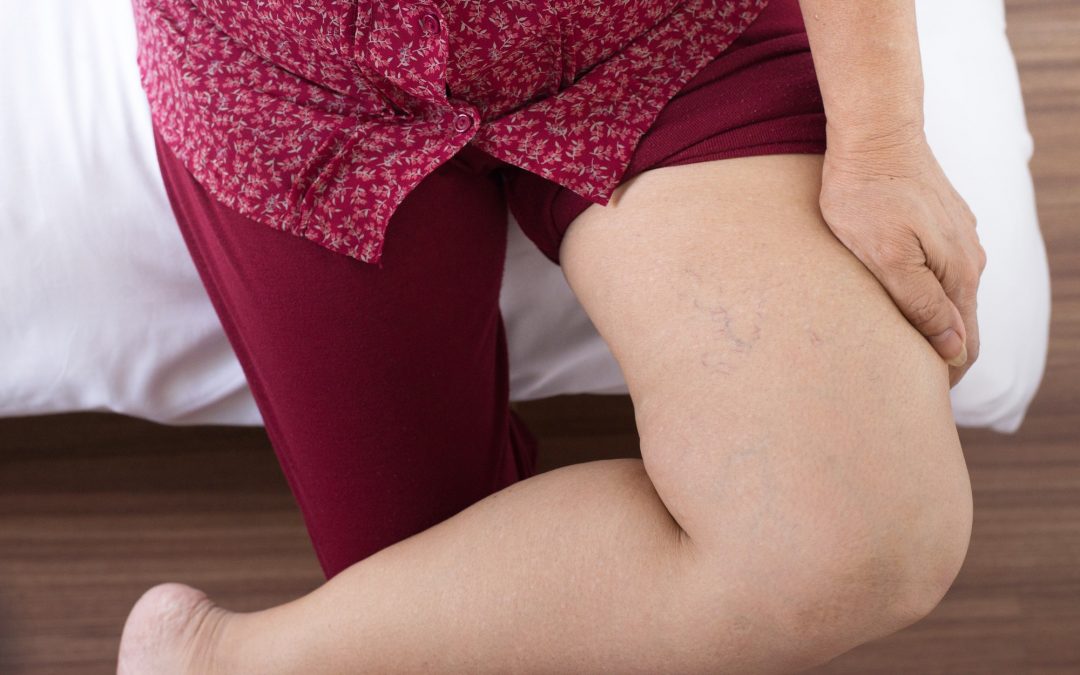Varicose veins are swollen, twisted veins that appear just under the skin on the legs. Learn how varicose veins and circulation are connected – and how you can do something about it.
A properly functioning circulatory system can efficiently transport oxygen and nutrients throughout the body.
However, some health conditions can lead to poor circulation. Some symptoms of poor circulation include tinging sensations, cold feet, and painful varicose veins.
Moreover, you can experience coldness in other extremities (such as your hands) even when it’s warm.
You can also feel swelling, pain and muscle cramps – all of which can point to underlying medical issues. One of the conditions linked with poor circulation is atherosclerosis.
Atherosclerosis results in restricted circulation due to a build-up of plaque in the blood vessels and arteries.
This condition generally affects the arteries that supply blood to the brain and heart. When this condition affects your legs, it’s known as peripheral artery diseases.
Another condition that negatively affects circulation is diabetes. When people have diabetes, the glucose increases in their bloodstream, leading to an increase of plaque in the arteries.
In addition, lifestyle habits such as eating high-fat diets and smoking can impede circulation by damaging the blood vessels.
 Varicose Veins and Circulation
Varicose Veins and Circulation
When someone has problems with their circulation, varicose veins can appear.
Varicose veins look like knotted, distended veins that appear on the legs and feet – and they can be a sign of a serious venous disorder.
The cause of varicose veins is a disruption of the blood flow between the heart and the extremities.
Each leg vein contains valves that work to counteract the gravity that forces blood to flow downward.
They do this by pumping the blood back to the heart, which may not work properly in people with poor circulation.
In certain cases, the valves fail to redirect the blood to the heart. This can be due to several factors such as obesity, pregnancy, heredity, or sitting/standing for extended periods of time.
The malfunctioning valves cause blood to pool in the veins, and since the vein walls can’t contain the extra blood, the veins extend outward – resulting in varicose veins.
While varicose veins may look unattractive, their damage is beyond looks. People with varicose veins can experience swelling, aches, itchiness, and legs that feel heavy.
Moreover, these veins can spontaneously bleed from minor scrapes and cuts. While a healthy person can expect to heal quickly, poor circulation can slow healing down, adding to the problems.
The slow-healing process may even lead to ulcers around these veins that don’t heal quickly.
Boosting Circulation
Poor circulation may or may not be an underlying cause to a bigger problem. Doctors can perform test to figure out the cause of poor circulation. Some of these tests include a blood test, an ultrasound, and even a CT scan.
Once the doctor determines the cause, they may prescribe blood thinners and other medicine if necessary.
However, there are plenty of things you can do now to improve your health and prevent varicose veins – especially if you’re currently healthy.
Adopting healthy lifestyle habits can go a long way to improve blood flow. Some things you can do is eating a healthy diet, becoming more physically active, and quitting bad habits such as smoking.
Moreover, foods rich in omega-3 are great for boosting circulation. Some natural sources of omega-3 are salmon, walnuts, brussels sprouts, and broccoli.
Finally, you can add circulation supplements to your daily routine. L-arginine Plus is one of the best circulation supplements on the market.
It combines powerful ingredients such as l-arginine, l-citrulline, AstraGin, and other key vitamins and minerals to increase nitric oxide production. Nitric oxide dilates blood vessels and improves overall circulation as well as energy levels, cholesterol levels, and vein health.
However, if you already have varicose veins, you may need a surgical procedure to remove them. Discuss your options with your doctor.
Regardless of your situation, it’s always a good idea to start taking care of your health now – especially circulation health.

